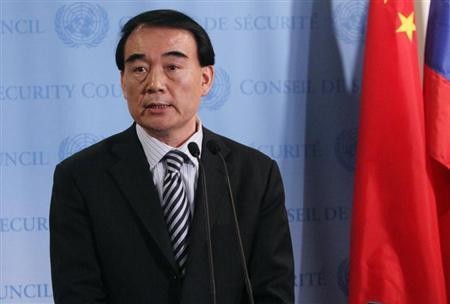The United Nations has unveiled on Thursday at its China headquarters in Beijing a revamped edition of its 17-year-old Chinese-language website.
The recent re-launch is part of the organization's plan to totally restructure and redesign its online portal in all six of its official languages.
The effort aims to make a more perceptive and dynamic user experience embodying the forward-looking visions of the U.N. as it celebrates its 70th-year anniversary.
The latest version of U.N.'s Chinese-language website features news technology as well as user interaction and integration with the country's most popular regional platforms.
These include several Chinese services such as video service Youku and microblogging service Sina Weibo.
Furthermore, the site's online content are crafted to suite maximum viewing and browsing experience on both desktop computer monitors and smartphone and tablet screens.
"Chinese is one of the oldest languages in the world. Chinese characters are an important part of the shared cultural roots of the Chinese people," Chinese Vice Foreign Minister Li Baodong said at the launching ceremony.
In 1946, Chinese was established as one of U.N.'s official languages and has become one of the organization's working languages in 1973.
Li has high hopes that the new edition of the Chinese-language U.N. website would be "more popular and attract more clicks," citing the online portal's Chinese services.
"It will bring the voice of the U.N. to millions of Chinese households, garner more support for the U.N.'s call for peace and development, and cement China's relationship with the U.N.," the vice foreign minister stated.
Meanwhile, U.N. Secretary-General Ban Ki-moon remarked in his congratulatory message that the website "will enable [the organization] to reach hundreds of millions of people across China, especially the general public."
"Already very active on U.N. social media outlets, China's people can now be even more engaged in the global online conversation about world affairs and global efforts to achieve peace, development and human rights," Ban added.
Jan Eliasson, Ban's deputy whom the message was forwarded, also lauded the country's significant role in U.N. peacekeeping missions, recounting the final detachment of China's infantry battalion leaving for South Sudan to accomplish a peacekeeping scheme on April 7. This serves as the 25th anniversary of China's participation in the organization's global peacekeeping efforts.
Eliasson also cited the country's open-mindedness in sending aid to evacuate nearly 300 foreigners in the U.N.'s most recent Yemen evacuation mission.
Both Li and Eliasson agreed that the 70th-year anniversary revelry of the United Nations is an "opportunity to reflect on the past and look into the future." The commemoration coincides with the World War II conclusion and the victory of China in the War of Resistance against Japanese Aggression.
According to the deputy, multilateralism is the best means by which all international interests could be addressed.
On the other hand, Li has proposed that all members of the international community should "uphold the purposes and principles of the U.N. Charter, maintain the authority and role of the U.N., and give full play to its positive role in managing issues crucial to world peace and development."



























